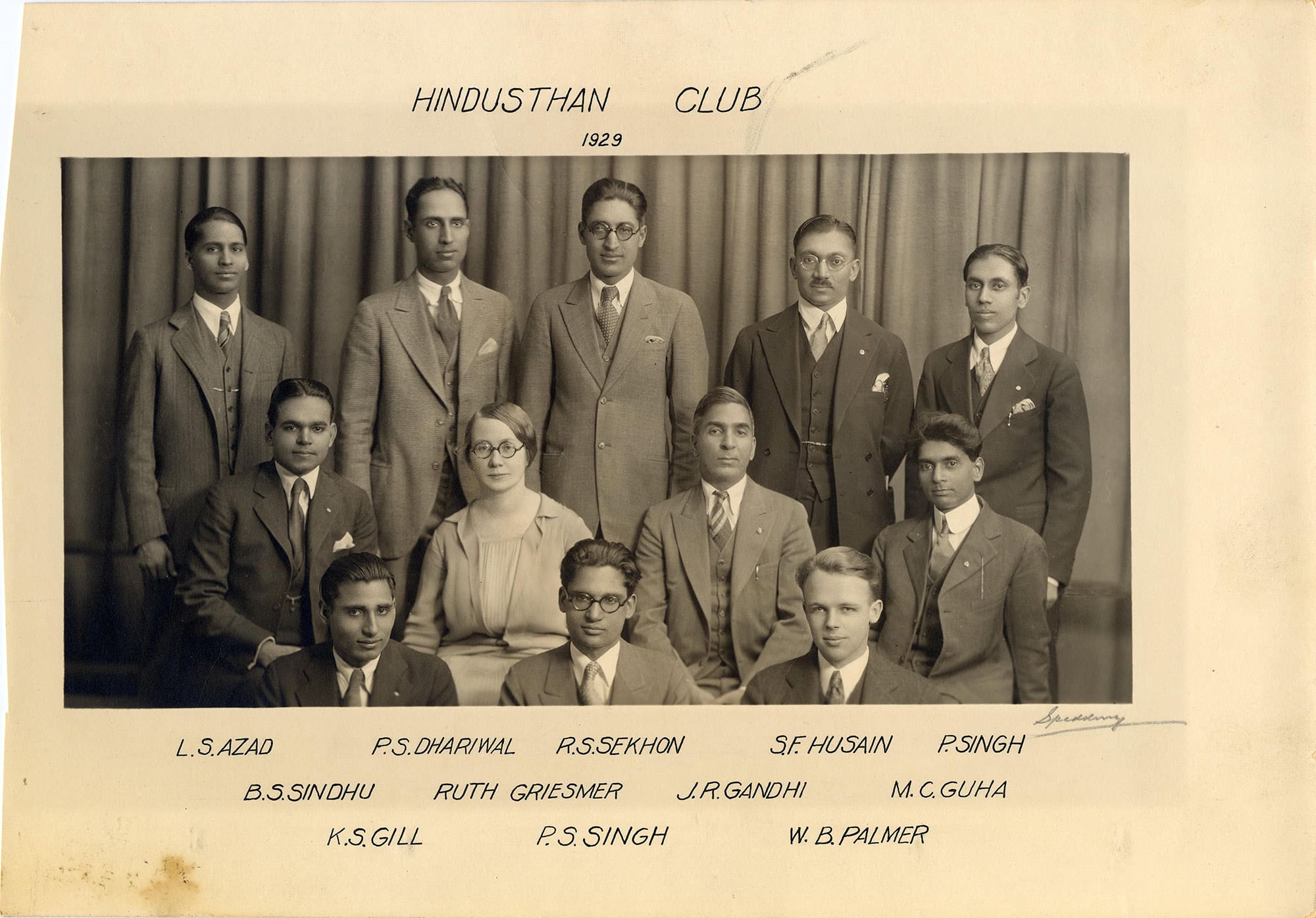People & Communities includes projects that focus on the lived experiences of individuals and communities within and around our campuses and on how institutional policies, practices, and norms have affected these experiences.


Hindusthan Club, 1929
Courtesy of University of Michigan Office of Student Publications
University of Michigan Library Digital Collections
Michiganensian Yearbook, Volume 33, 1929, p. 295.
People & Communities
Project Sites
Native American Student Stories
Fall 2023Co-PIs: Bethany Hughes and the Native American Student Association
The Native American Student Stories Project is a community history of the Native American Student Association (NASA) on the Ann Arbor campus of U-M. Founded in 1972, NASA has provided a space for Native American students to create and participate in a vibrant community for over fifty years. The website created as a result of this project is a living archive of memories, photographs, histories, and events shared by the Native American community at U-M.
African American Student Project
Fall 2016 - PresentPI: Brian Williams
The African American Student Project started in 2016, with the goal of providing more information about African Americans at U-M. The core of the project is a searchable database containing the names and years of attendance of more than 9,000 African American students who attended the university for any length of time from 1853 until 1980.
The Origins of UM-Flint’s Student Support Services Centers
Spring 2024 - presentPI: Lisa M. Lapeyrouse
This project is documenting and deepening our collective understanding of the role students, staff, faculty, and the broader Flint community have played in the founding of various centers focused on inclusion and student support on the UM-Flint campus. These centers include the Student Veterans Resource Center, the Center for Gender and Sexuality, the Center for Global Engagement, the Intercultural Center, and the Office of Educational Opportunity Initiatives. With research led by staff at each of the centers who are serving as Center Fellows, the project is considering the founding missions of the centers, the role of student activism in creating and maintaining them, how they have changed over time, and their ongoing grappling with inclusion and belonging.
Outsiders, Insiders, Radicals, and Reformers: A History of Jews at the University of Michigan
Summer 2024 - presentCo-PIs: Karla Goldman and Deborah Dash Moore
Outsiders, Insiders, Radicals, and Reformers traces the experience of Jewish students, faculty, and administrators at the University of Michigan, exploring the trajectory of Jews at U-M from outsiders to insiders (and sometimes back again). Growing numbers of students from Jewish immigrant families in the 1920s–who faced quota restrictions and exclusions at most northeastern private colleges–prefigured the centrality higher education would take in shaping the upward mobility and culture of American Jews. In more recent decades, Jewish “insiderness” at U-M and other universities has often been challenged by campus conflicts related to Israel. While Jewish campus experience has received focused historical inquiry at many elite private schools, less study has been done for public universities like U-M that defined university experience for so many. Recovering U-M’s Jewish history thus has the potential to reframe our understanding of both Jewish experiences in the U.S. and the history of American universities and to shed light on outsider experience (by virtue of religion, ethnicity, race, or social class) at American public universities.
Towards Community-Based Shared Stewardship
Summer 2024 - PresentCo-PIs: Alexis Antracoli and Jesse Johnston
The Bentley Historical Library and the School of Information are collaborating to develop community-based stewardship relationships that aim to reverse the extractive relationship between university repositories and under-represented minority communities throughout Michigan. Instead of extracting resources and records from communities for study by scholars, we are working to build relationships with marginalized communities represented in the Bentley’s collections. Relationships built through this project will support the Inclusive History Project’s goals of building more trusting relationships between the university and under-represented minority communities and taking reparative action that contributes to a more inclusive future for the University of Michigan. In the first year, the team will focus on deepening knowledge of Native American collection materials in the Bentley’s collections and building relationships with tribal communities.

